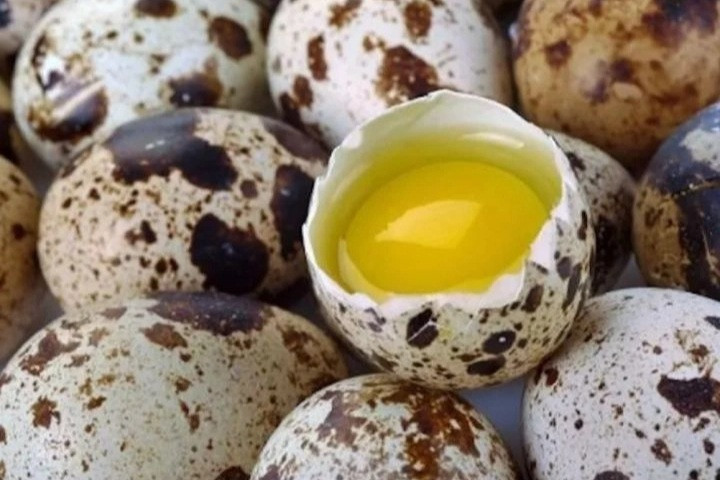Eggs under 1,000 VND are more nutritious than chicken eggs.
This type of egg is richer in protein and vitamin B than chicken eggs; and has more lecithin, copper, cobalt, niacin and essential amino acids than other eggs.
Quail eggs have long been known as a nutritious food, popular in many cuisines around the world.
According to the Vietnam Institute of Applied Medicine, quail eggs, although small, have many health benefits. Quail eggs are richer in protein and vitamin B than chicken eggs; and contain more lecithin, copper, cobalt, niacin and essential amino acids than other eggs.
According to Oriental medicine, quail eggs are sweet, neutral in nature; enter the spleen, stomach, and large intestine meridians. They have the effect of nourishing the five internal organs, replenishing the middle and benefiting the qi. Used for cases after long-term illness that cause blood and qi deficiency, poor digestion, and postpartum weakness. Children use 2-4 eggs daily, equivalent to one chicken egg; adults use 5-8 eggs.

According to Oriental medicine, quail eggs are sweet and neutral; they enter the spleen, stomach, and large intestine meridians. They have the effect of nourishing the five internal organs and replenishing the middle and qi. Photo: Getty
Quail eggs are also very cheap. According to a survey, in many supermarkets a tray of 30 quail eggs costs only 20,000-25,000 VND.
Eating quail eggs in reasonable amounts has been scientifically proven to bring the following health benefits:
Strengthen the immune system
Quail eggs are rich in vitamins and minerals, especially vitamin A and selenium, which play an important role in boosting the immune system.
Vitamin A helps maintain the health of tissues and mucous membranes, which are the first line of defense against pathogens. Selenium, a powerful antioxidant, helps protect cells from free radical damage and boosts immune function.
Improve eyesight
Vitamin A in quail eggs is not only good for the immune system, but is also important for eye health. According to a study published in the journal "Ophthalmology," adequate vitamin A intake can reduce the risk of eye diseases such as macular degeneration and cataracts.
Support children's development
The proteins and essential amino acids in quail eggs are essential for children's growth and development. According to a study from Kyushu University (Japan), quail eggs provide high-quality and easily absorbed proteins, helping to improve nutritional status and enhance muscle development in children.
Reduce the risk of heart disease
Although quail eggs contain cholesterol, research has shown that moderate consumption of quail eggs does not increase the risk of heart disease.
According to a study published in the "Nutrition Journal", antioxidants in quail eggs can help reduce bad cholesterol (LDL) levels and increase good cholesterol (HDL), thereby reducing the risk of cardiovascular diseases.
Support brain health
Quail eggs are rich in choline, a nutrient that is important for brain development and function. According to research from the US National Institutes of Health (NIH), choline helps improve memory, enhance learning ability and reduce the risk of cognitive impairment-related diseases such as Alzheimer's.
Improve skin and hair health
The vitamins and minerals in quail eggs, especially vitamins A and B2, help maintain healthy skin and shiny hair.
Vitamin A promotes the growth and repair of skin cells, while vitamin B2 helps reduce inflammation and protect skin from UV damage.
Notes when eating quail eggs
An average quail egg weighs about 10g. Therefore, use 3-5 quail eggs to replace one chicken egg weighing about 50g.
The number of quail eggs that can be consumed depends on your age and health condition. For children 5-12 years old, they should only eat 1-2 eggs/day, not continuously for more than 15 days.
For children over 12 years old and adults should eat 5-10 fruits/day, do not eat continuously for more than 3 months.
